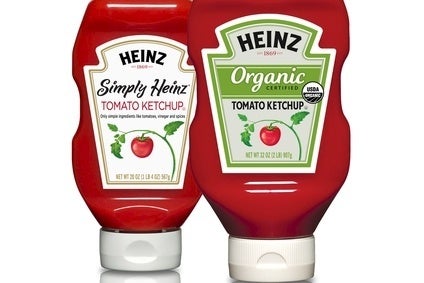
Seven US food and drink companies including Hain Celestial, Hormel Foods, Kraft Heinz Co. and Pinnacle Foods have agreed to publicly reveal how they are assessing and managing the risk that water poses to global food supplies.
The commitments come in response to letters sent in August by a group of 60 European and US institutional investors, who jointly manage $2.6 trillion in assets, pressing the companies to disclose how they are managing risks such as drought and increased competition for freshwater supplies in major growing regions of the world.

Discover B2B Marketing That Performs
Combine business intelligence and editorial excellence to reach engaged professionals across 36 leading media platforms.
All the companies have agreed to report to a 2016 water questionnaire set up by environmental non-governmental organisation CDP on their water risks and their strategies for offsetting such risks across their operations.
"With agricultural and other water uses under the microscope in drought-stricken regions like California and Brazil, investors want better data on how food companies are managing these risks across their global supply chains," said Brooke Barton, senior director of water programmes at US-based sustainability think tank Ceres.
In addition to the companies that have agreed to greater disclosure, a further five – dairy giant Dean Foods, two ingredients groups Archer Daniels Midland and Ingredion, plus meat processors JBS and poultry processor Pilgrim's Pride – are analysing their risk assessment and plan to respond to the investors "promptly", Ceres said. Three businesses – US baker Flowers Foods, Fresh Del Monte Produce and energy drink group Monster Beverage Corp., have so far failed to respond. The companies were chosen on the basis of the low scores they attained in a report entitled Feeding Ourselves Thirsty published in May by Ceres.
"It is no question that water currently poses a large risk to business, and particularly to food and beverage companies that strongly rely on agricultural inputs," Carly Greenberg, environmental, social and governance research analyst at US-based Walden Asset Management, one of the signatories to the letters. "However, we at Walden Asset Management believe that advanced planning, risk measurement, transparency and overall better water management can help investors and companies alike to avoid extreme costs associated with water scarcity, pollution, or variable precipitation due to climate change."

US Tariffs are shifting - will you react or anticipate?
Don’t let policy changes catch you off guard. Stay proactive with real-time data and expert analysis.
By GlobalData




